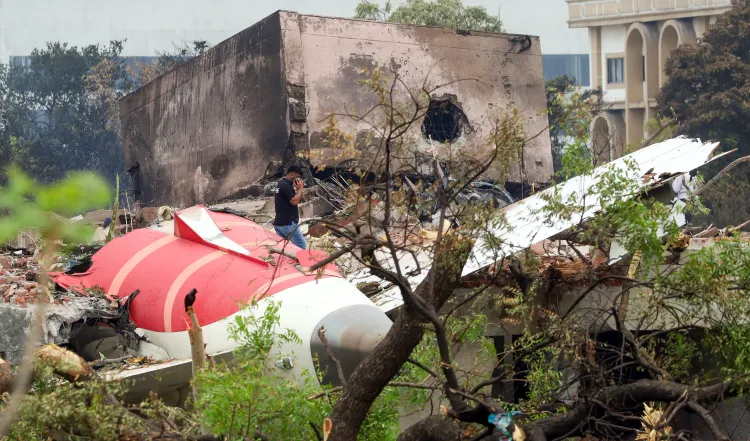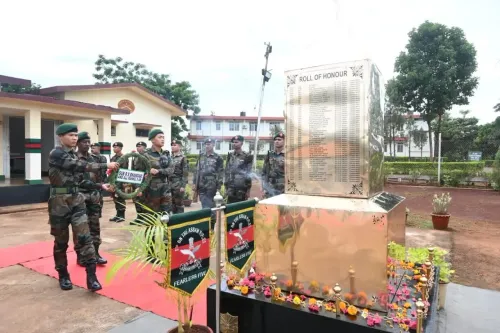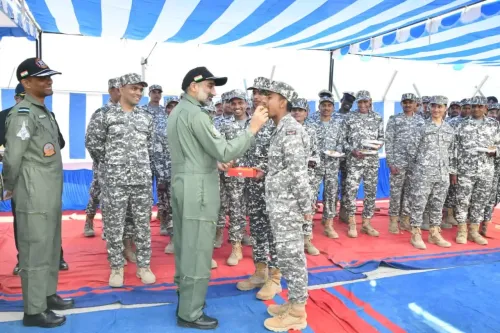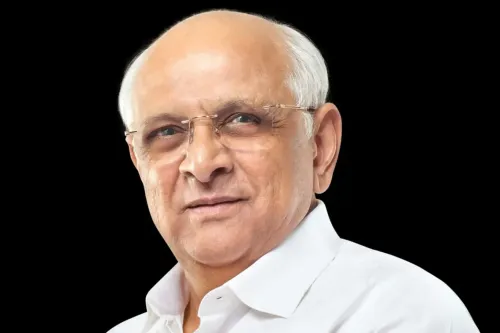What Did the AAIB Find in Their Preliminary Report on the Air India Plane Crash?

Synopsis
Key Takeaways
- The AAIB has submitted a preliminary report on the Air India 171 crash.
- 241 lives were lost in the incident, with only one survivor.
- Investigators are examining potential dual-engine failure.
- International teams are collaborating with Indian experts for a thorough investigation.
- India's AAIB Lab is now capable of decoding black boxes domestically.
New Delhi, July 8 (NationPress) The Aircraft Accident Investigation Bureau (AAIB) has officially presented its initial report regarding the Air India flight AI171 incident to the Ministry of Civil Aviation and other pertinent entities.
According to high-ranking government officials, this report, which is grounded in preliminary evaluations and findings, is anticipated to be released to the public later this week, as reported by NDTV.
The unfortunate incident occurred on June 12 when the London-bound Air India flight AI171 tragically crashed into a medical college hostel mere seconds after take-off from Ahmedabad Airport. The incident resulted in the loss of 241 lives on board and 19 individuals on the ground, with only one passenger managing to survive the catastrophic event.
On June 13, a combined unit of the Digital Flight Data Recorder (DFDR) and the Cockpit Voice Recorder (CVR) was retrieved from the crash site, with another set located on June 16. This aircraft model is equipped with two black boxes.
Immediately following the crash on June 12, a multi-disciplinary team from AAIB initiated an investigation, as directed by the Director General of AAIB. Teams from the US NTSB and Original Equipment Manufacturer (OEM) also arrived to aid the AAIB in accordance with ICAO protocols.
Reports indicate that investigators are examining whether a dual-engine failure could have contributed to the crash.
The investigation is being led by AAIB officials, with contributions from technical experts from the Indian Air Force, Hindustan Aeronautics Limited (HAL), and the US National Transportation Safety Board (NTSB), representing the country of the aircraft's design and manufacture.
Oversight of the investigation falls to the Director General of AAIB. The team comprises an aviation medicine specialist and an Air Traffic Control officer. The NTSB team has been collaborating closely with Indian authorities at the AAIB Lab. Additionally, representatives from Boeing and engine manufacturer GE have participated in the technical evaluation.
In the past, black boxes from Indian aviation incidents were typically sent abroad for decoding to facilities in nations such as the UK, US, France, Italy, Canada, and Russia. India had previously lacked the infrastructure for domestic analysis of black box data from significant crashes. However, with the establishment of a fully equipped AAIB Lab in Delhi, India now possesses the capability to decode both cockpit voice and flight data recorders locally.









